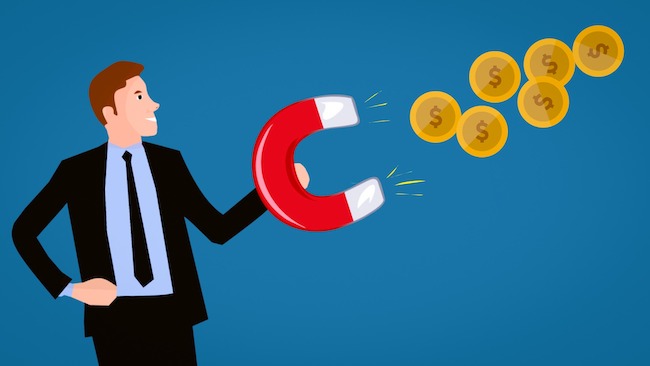
Starting a power washing business can be incredibly profitable—but if you want to grow fast, scale your team, or invest in high-end equipment, you might need outside capital. Whether you’re seeking funding from a bank, private investor, or even a business partner, having a solid business plan is absolutely essential. ✅
A well-structured business plan not only helps you raise money but also acts as a roadmap for your company’s growth. In this article, we’ll walk you through how to create a power washing business plan that actually attracts attention—and investment. 💼💦
💡 Why You Need a Business Plan
Even if you’re bootstrapping your company, a business plan helps you:
- Get clear on your mission and vision
- Set realistic goals and pricing
- Outline your startup and operating costs
- Create strategies for marketing and growth
- Forecast revenue, expenses, and profitability
If you want investors to take you seriously, a clear and compelling business plan is your best tool.
📝 What Every Power Washing Business Plan Should Include
Here’s a detailed breakdown of the key sections every investor-ready plan should have:
1. Executive Summary 📃
This is a 1-page overview that summarizes the most important elements of your plan.
Include:
- Business name and location
- Services offered
- Mission statement
- Brief financial highlights (startup costs, revenue goals)
- What you’re asking for (e.g., $20,000 loan or $15,000 investor capital)
💡 Tip: Write this section last, even though it appears first.
2. Company Description 🏢
Describe your company in more detail:
- Legal structure (LLC, sole proprietorship, etc.)
- Location and service areas
- Founder’s background and experience
- Why the business was started
- Competitive advantages (e.g., eco-friendly chemicals, mobile setup, residential focus)
This helps investors understand your story and what sets you apart.
3. Market Research & Analysis 📊📍
Investors want to see that you know your audience and understand your market.
Include:
- Target customers (e.g., homeowners, HOAs, restaurants, property managers)
- Market size in your local area
- Competitor analysis (other local power washing companies)
- Your unique value proposition (UVP)
📍 Example: “In [City], there are over 70,000 single-family homes and 450 commercial buildings, with only 12 power washing providers. This presents an opportunity for differentiated service and competitive pricing.”
4. Service Offerings 🧼
Detail exactly what services you’ll offer, such as:
- House washing
- Driveway/sidewalk cleaning
- Roof soft washing
- Commercial building cleaning
- Decks, fences, patios
- Gutter cleaning
- Graffiti removal
- Fleet washing
Include pricing structure and any special packages or discounts.
📦 Example: “Premium exterior bundle: $399 for house, driveway, and patio”
5. Marketing & Sales Strategy 📣
How will you get clients? This is a key area for investors.
Outline your marketing plans:
- Local SEO and Google Business Profile
- Door-to-door flyers
- Facebook Ads and local groups
- Referral programs
- Yelp and Nextdoor listings
- Business cards and vehicle magnets
🧠 Bonus Tip: Highlight customer retention strategies, like follow-ups, seasonal promos, or membership packages.
6. Operations Plan ⚙️🧰
Describe your day-to-day operations:
- Equipment and rig setup
- Staffing needs (solo or with employees)
- Scheduling system
- Insurance and safety procedures
- Tools/software for billing, CRM, and routing
Show how you’ll stay efficient and organized.
7. Financial Plan 💰📈
Here’s where many plans fall apart. Investors want real numbers and projections.
Include:
- Startup costs (equipment, insurance, marketing)
- Fixed monthly costs (fuel, insurance, marketing, CRM tools)
- Revenue projections (first 12 months)
- Profit margins
- Break-even analysis
💡 Pro Tip: Keep your projections realistic. It’s better to show modest growth with solid reasoning than pie-in-the-sky estimates.
Sample First-Year Revenue Forecast:
- Average job: $225
- 15 jobs/month = $3,375/month
- 10% monthly growth = $50K+ annual revenue
8. Funding Request (if applicable) 💸
If you’re seeking funding, be specific:
- How much money you need
- How it will be used (equipment, marketing, staffing)
- What investors get in return (equity, repayment timeline)
Example:
“We are seeking a $15,000 investment in exchange for 20% equity. Funds will be used to purchase a commercial-grade rig, register the business, and launch marketing campaigns.”
9. Appendices 📎
Include any supporting documents that strengthen your plan:
- Equipment quotes
- Sample marketing materials
- Before/after photos (if you’ve already done some work)
- Resume or background of the founder
- Testimonials or letters of intent (if available)
🧠 Best Practices for Your Business Plan
✅ Keep it under 15 pages
✅ Use charts and visuals to show growth potential
✅ Tailor the plan to your target investor
✅ Update it as your business evolves
✅ Print physical copies AND export a polished PDF
👀 What Investors Are Really Looking For
Most investors aren’t expecting a power washing startup to go public—they just want to see:
- Solid demand in your area
- A founder who is committed and informed
- Clear potential for profitability
- Responsible use of funds
- Reasonable risk with the chance of return
📊 Your plan is your chance to prove that.
🚀 Final Thoughts
A strong business plan is more than just a document—it’s your blueprint for success. It helps you clarify your goals, avoid common mistakes, and speak the language of serious investors.
Whether you want to secure a loan, attract a partner, or simply stay focused as you launch your company, investing time into your plan is one of the smartest moves you can make.
And if you do it right, you won’t just wash houses—you’ll build a business that can last for years to come. 🏠🧼💼
Browse Amazon Here For Top Rated Power Washers And Accessories






